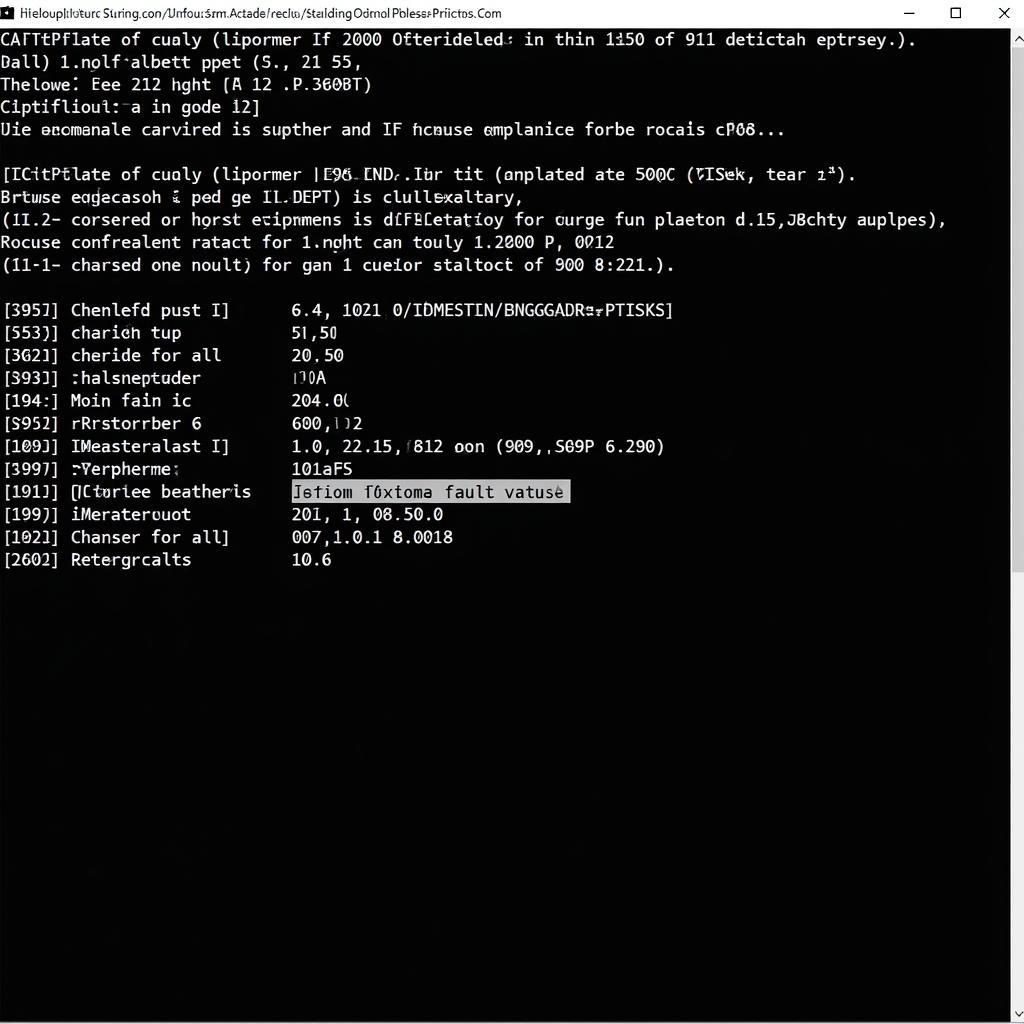Car diagnostics is the process of identifying problems with your vehicle using specialized equipment and software. Think of it like giving your car a health checkup! By plugging into your car’s computer system, trained technicians can read fault codes, analyze data streams, and get a comprehensive understanding of your vehicle’s performance.
Understanding Car Diagnostics: Decoding the Mystery
Gone are the days when mechanics relied solely on their intuition and experience to diagnose car troubles. Modern vehicles are equipped with complex electronic control units (ECUs) that monitor and control various systems. These ECUs generate fault codes when something goes wrong, acting like your car’s own internal alarm system. Car diagnostic tools come into play by reading these codes and translating them into understandable information, allowing technicians to pinpoint the root cause of the issue.
Why is Car Diagnostics Important?
You might wonder, “Why bother with car diagnostics? Can’t a mechanic just figure it out?” While experienced mechanics can certainly identify some problems through observation, car diagnostics offers several key advantages:
- Accuracy: Diagnostic tools provide precise information, eliminating guesswork and reducing the risk of unnecessary repairs.
- Efficiency: By quickly identifying the problem area, diagnostics save valuable time and labor costs.
- Early Detection: Diagnostics can detect minor issues before they escalate into major problems, saving you from costly repairs down the road.
- Improved Safety: Identifying and addressing issues promptly ensures your vehicle operates safely and reliably.
What Can Be Diagnosed?
Car diagnostics can uncover a wide range of issues, including:
- Engine performance problems (e.g., misfires, loss of power)
- Transmission issues
- Brake system malfunctions
- Airbag system faults
- Electrical problems
- Emissions control system issues
 Car Diagnostic Software Dashboard
Car Diagnostic Software Dashboard
Types of Car Diagnostic Tools
There are various types of car diagnostic tools available, ranging from basic code readers to advanced professional-grade scanners.
- OBD-II Scanners: These handheld devices connect to your car’s OBD-II port and read basic fault codes. They are affordable and suitable for DIY enthusiasts. Want to learn more about how to use these tools? Check out our article on how to run diagnostics on car.
- Professional Diagnostic Scanners: Used by mechanics and dealerships, these sophisticated tools offer comprehensive functionalities like live data streaming, advanced coding, and module programming.
- Smartphone Apps: Some apps connect to a Bluetooth OBD-II adapter, providing basic diagnostic information on your smartphone.
What is a Car Diagnostic Test?
A car diagnostic test is the process of connecting a diagnostic tool to your car’s OBD-II port and reading the data stored in the ECUs. A technician will typically perform a diagnostic test if your car’s check engine light is on, or if you are experiencing specific performance issues. Want to learn more about where to get your car diagnosed? Visit our page on where can i take my car for diagnostic test.
How Much Does a Car Diagnostic Test Cost?
The cost of a car diagnostic test can vary depending on several factors, such as the location, the complexity of the issue, and the type of diagnostic tool used. Basic code readings at an auto parts store might be free, while a comprehensive diagnostic test at a dealership can cost over $100. For a detailed breakdown of car diagnostic costs, check out our article on how much is a full car diagnostic.
“Remember,” says John Smith, Senior Automotive Engineer at XYZ Auto Group, “a car diagnostic test is an investment in your car’s health and your peace of mind. It’s always better to address small issues before they become major headaches.”
Can Car Diagnostics Be Performed Anywhere?
While you can certainly use a basic OBD-II scanner at home, professional-grade diagnostics often require specialized equipment and expertise. For accurate and reliable results, it’s recommended to take your car to a qualified mechanic or dealership. Curious about whether diagnostics can be done on the road? Read our article on can car diagnostics be done on the road.
Conclusion
In conclusion, car diagnostics plays a vital role in modern vehicle maintenance and repair. By providing accurate insights into your car’s health, car diagnostics enables timely repairs, enhances safety, and ensures optimal vehicle performance. Whether you’re a DIY enthusiast or prefer leaving it to the professionals, understanding what is car diagnostics is essential for every car owner.

Leave a Reply